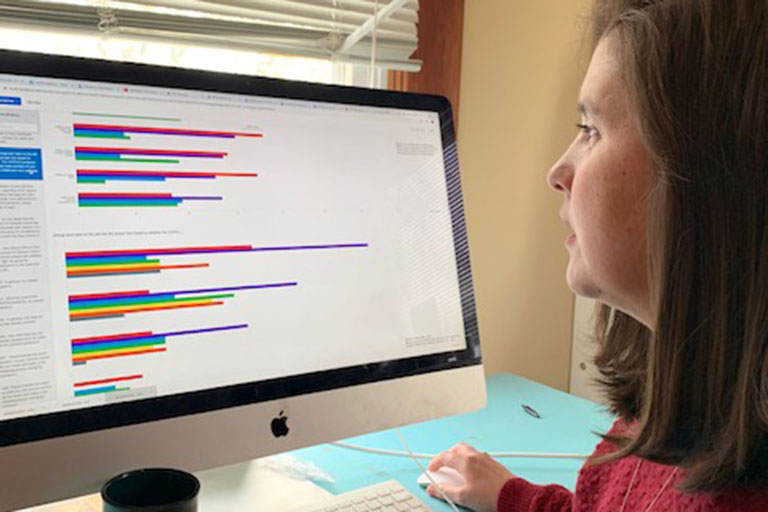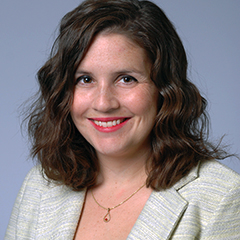April 2020
Individuals with chronic diseases such as epilepsy find themselves at higher risk for contracting the novel coronavirus. IUPUI’s Wendy Miller is working to understand how the novel coronavirus is impacting those patients now to better prepare for the future.
“Under normal circumstances, almost half of the United States population is managing a chronic disease, and 40 percent are managing more than one,” said Miller, an associate professor in the School of Nursing. “Those diseases don’t go away just because we had a pandemic.”
With COVID-19 putting healthcare systems under great stress, Miller and her team were interested in seeing how individuals with chronic diseases, particularly epilepsy, were impacted.
In March, they launched a survey targeting adults with epilepsy and caregivers to discover how the pandemic has affected their ability to receive medication, communicate with providers, manage side effects, and more. While they are still analyzing the findings, one thing is clear: COVID-19 has made it much more difficult to manage a chronic disease.
“It was already hard before with the healthcare system at near capacity, but it’s almost impossible now,” Miller said. “Some providers are beginning to provide telemedicine services, which will definitely help.”
Miller hopes the information she is gathering can make a difference if, in the future, we find ourselves in another time of social distancing and quarantine. Identifying the vulnerabilities and needs now offers an opportunity to develop systems and policies that protect high-risk, non-COVID patients in need.
“It’s becoming clear from the CDC and World Health Organization that we are probably going to have to do rounds of social distancing in the future,” Miller said. “We can set systems in place that will alleviate the problems for patients with chronic disease, helping to reduce the burden and improve outcomes.”
Miller also offered advice for individuals with chronic conditions for continuing to manage their care during this uncertain time.
“Take the social distancing extremely seriously and reach out to your providers to advocate for yourself and ask if there is a way to connect with your provider virtually,” Miller said. “Don’t say you’ll just deal with it after COVID-19 and think it will go away; be proactive.”



